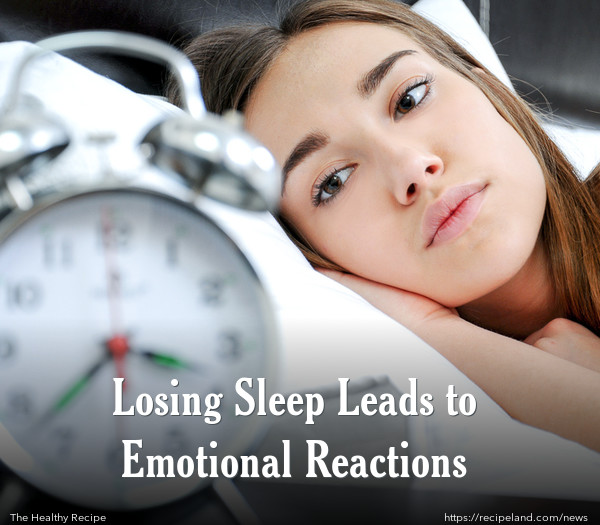A recently published book helped to explain the correlation between lack of sleep and emotional affect problems like mood disorders, anxiety disorders, bipolar disorder and depression. The findings showed that lack of sleep can lead to more extreme responses to stressful situations.
The book, called Sleep and Affect: Assessment, Theory and Clinical Implications, which was co-edited by a psychology professor from the University of Arkansas and a doctoral student. Affect is a term that refers to a range of psychological responses and behaviours.
Matthew Feldner, a psychology professor in the J. William Fulbright College of Arts and Sciences, states, "In our study, we wanted to find out if there was a link between the loss of sleep and our emotional response. We saw that if a person lost a night of sleep they responded with more emotion to a laboratory 'stressor.' This finding extended previous work that had linked chronic sleep loss to anxiety and mood disorders."
Feldner’s book, which he co-edited with Kimberly A. Babson, Ph.D., a health science specialist at the National Center for Post-Traumatic Stress Disorder in Menlo Park, California. The book presents a study regarding the influence of sleep on a variety of components dealing with emotion and affect. Feldner explains, "One of the themes that emerged across these chapters is that certain components of emotion seem particularly linked to sleep. What we call 'stressors' tend to be more emotionally arousing for people who haven't slept well, and emotional arousal also appears to interfere with sleep quality."
The research was conducted by Babson at the University of Arkansas laboratory, using a National Institutes of Health research training fellowship. Felder further explains, "We present this information in a way that will help clinicians both assess for sleep problems and problems related to anxiety or mood, when a patient is seeking treatment for one and maybe not the other. By improving sleep, we might improve our treatments for anxiety problems."
In addition, the book addresses the latest neuroscientific findings discussing sleep loss. Because of the significant effects on emotional regulation, Feldner expressed that it is important to understand the connection. He concluded, "Some of the neurobiological structures that we think are involved in regulating emotional or affective experiences don't seem to function the same after we lose sleep as they do when we are fully rested.”
Experts recommend that adults get 7-8 hours of sleep for good health.










Comments